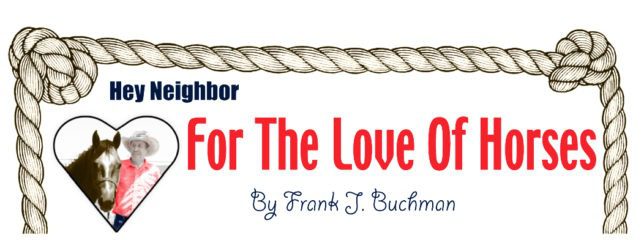An initial shout of “Hurray” came last week from a substantial number of horse owners.
But groans from other horsemen and welfare activists quickly countered the ovation.
Those responses arose when Congress lifted a ban on funding horse meat inspections.
Thus, horses could be butchered in this country for human consumption, with some forecasting slaughterhouses might be running within a month.
Opponents pushed a measure eliminating funds for horse meat inspections through Congress in 2006 after efforts to pass bans on horse slaughter failed.
Congress lifted the ban in a spending bill President Obama signed into law November 18, to keep the government afloat.
It did not allocate money to pay for horse meat inspections, which opponents claim could cost taxpayers $5 million a year.
The United States Department of Agriculture (USDA) would have to find the money in its existing budget, which is expected to see more cuts as Congress and the White House trim spending.
Since 2007, when an Illinois horse processor closed, horses that would have been slaughtered in this country have gone to plants in Mexico and Canada.
“Lifting the ban was all done secretly,” according to Silvia Christen, of the South Dakota Stock Growers Association, who contended ranchers were pleased with the news.
USDA spokesman Neil Gaffney said, “There are no slaughterhouses in the U.S. that butcher horses for human consumption, but if one were to open, we would conduct inspections to make sure laws are followed.”
Christen believes there are facilities prepared to go almost immediately. She admitted, “Inspections will be more stringent than they were before the ban. There will be people watching to make sure correct procedures are followed, and animals are treated humanely.
The Government Accountability office reported that 138,000 horses were transported to Canada or Mexico in 2010, virtually the same number killed before slaughter was banned in the U.S. This country has an estimated 9 million horses.
“If plants open, you’ll see controversy, litigation, legislative action, and basically a very inhospitable environment to operate,” predicted Wayne Pacelle of The Humane Society. “You’ll have tremendous controversy over slaughtering Trigger and Mr. Ed.”
However, slaughter activists are scrambling to get a plant going, if not in South Dakota, then possibly Wyoming, North Dakota, or even Nebraska or Missouri.

They estimate a slaughterhouse could open in 30 to 90 days with state approval and eventually slaughter 200,000 horses annually for human consumption, mostly in Europe and Asia, where it’s a delicacy.
Dave Duquette, Hermiston, Ore., president of The United Horsemen, said, “No state has been picked yet, but investors will provide processor financing. The last three slaughterhouses were owned by foreigners, but this will be American-owned.”
Sue Wallis, a Wyoming state lawmaker, said, “Ranchers used to sell horses that were too old or unfit for work to packers, but now they ship them to butchers in Canada and Mexico, for less than half the price.
“The federal ban devastated an entire sector of animal agriculture for purely sentimental and romantic notions,” Wallis claimed.
Although there are reports of Americans dining on horse meat as recently as the 1940’s, the practice is virtually non-existent in this country.
Lawmakers in California and Illinois have banned the slaughter of horses for human consumption, and more than a dozen states tightly regulate the sale of horse meat.
Federal lifting of the ban on funding for horse meat inspections came about in part because of the recession.
Animal welfare organizations have reported sharply more horse neglect and abandonment cases.
In Colorado, data shows that investigations for horse abuse increased more than 60 percent from 975 in 2005 to almost 1,600 in 2009.
Cheri White Owl at the Horse Feathers Equine Rescue, Guthrie, Okla., insisted, “I’ve seen more horse neglect during the recession. We’re caring for 33 horses now and can’t accept more.
“A lot of the situation is due to the economy,” she said. “People have to pay their mortgage or keep their horse.”
Sen. Max Baucus, D-Mont., said the poor economy has resulted in “sad cases” of horse abandonment and neglect.Animal rightists argue that slaughtering is a messy, cruel process, and contend it would be kinder to have horses euthanized.
“Lifting the ban will give Americans a shot at regaining lost jobs and making sure sick horses aren’t mistreated,” Baucus emphasized.
But, U.S. Rep. Jim Moran, D-Va., is lobbying to permanently ban horse slaughter.
“The process is inhumane. I am committed to doing everything in my power to prevent the resumption of horse slaughter and will force Congress to debate this important policy in an open, democratic manner at every opportunity,” Moran said.
Canada has been labeled “opportunistic” for taking advantage of a situation in which horses could be purchased in the U.S., for as little as $50, and sold overseas as meat at considerable profit. Some horse meat is also consumed in Canada.
While certain welfare advocates argue horses should not be slaughtered for human consumption, the American Veterinary Medical Association acknowledges there is overpopulation, and it is better to kill the animals humanely rather than allow them to starve.
Sinikka Crosland, of the Canadian Horse Defense Coalition, said, “I’m disappointed to hear the news that horse slaughter plants could reopen in the U.S. I’m surprised President Obama would sign such a bill considering he had previously indicated he did not support horse slaughter.
“A few people managed to slip this through,” insisted Crosland, who remains optimistic a federal bill, currently before Congress called the Horse Slaughter Prevention Act of 2011, will supersede this recent bill and end horse slaughter completely.
